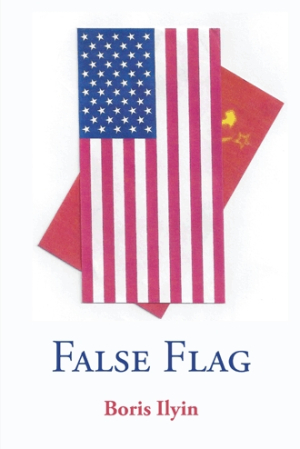False Flag
Cold War Paris is the perfect setting for the intriguing characters who populate this must-read thriller for spy-novel lovers.
Russian author Boris Ilyin’s espionage thriller, False Flag, is a fresh take on the spy novel, deftly integrating themes of love, illusion, art, and reality.
Living in Paris sometime after 1968, each of the book’s principal characters starts off nervous, for reasons far larger than the pervading French disquietude. Ben, a CIA agent, struggles to regain his confidence while on leave in Paris to paint: He botched his last assignment; does he still have the mettle of a spy, or should he just retire to paint?
As Ben dithers, he falls for smart American journalist Marian, who has troubles of her own. As an independent divorcée, Marian vacillates between the twin desires of wanting a career and desiring a lover. Meanwhile, Andrei, a KGB operative masquerading as a CIA worker, has the mission of orchestrating a coup in the fictitious African country of Sigirim. Ben’s suspicions about Andrei’s loyalties, Andrei’s own growing feelings for Marian, and the Russian’s crisis of conscience threaten to topple the scheme.
Although this novel has three central characters, it does not have a typical love triangle or follow any tired romance tropes. The story’s romantic intrigue turns out in surprisingly satisfying ways. Although Andrei is a practiced alpha male seducer and Ben more inexperienced and naive, it is a testament to Ilyin’s talent that both love affairs are believable and realistic.
Aside from the three main characters, Paris itself is also a player. From the French landmarks the characters pass by, to the famous streets they traverse, to the long-standing tradition of student protests, the author successfully depicts the city being full of nervous energy, the perfect backdrop for his emotional roller coaster of a novel.
Even though the story takes place in the twentieth century, it has an eerie relevance for the twenty-first. Because the audience sees events through both Ben’s and Andrei’s viewpoints, the universal truth that there are no true heroes and no true villains exists in stark relief as both men are portrayed with humanity. Furthermore, the Russians’ influence over the country of Sigirim underscores how superpowers bully developing countries, heedless of the resultant turmoil. In an era in which superpowers routinely destabilize and stabilize developing countries for their own motives, the use of Sigirim as a political pawn makes the story timely.
Also, with many people trying to redefine themselves after becoming unemployed in the recent recession, the process of Ben, Andrei, and Marian trying to define themselves in relation to their work has special resonance. Like those shifting careers, victims of downsizing may find themselves working hard, as the three main characters do, to forge identities for themselves outside their jobs.
As if the multilayered plot were not enough, the book brims with evocative phrases like: “Raw time dragged itself over him like a slow abrasive,” and “Painting was sometimes a little like doing a puzzle.” This is a must-read for any espionage lover.
Reviewed by
Jill Allen
Disclosure: This article is not an endorsement, but a review. The publisher of this book provided free copies of the book and paid a small fee to have their book reviewed by a professional reviewer. Foreword Reviews and Clarion Reviews make no guarantee that the publisher will receive a positive review. Foreword Magazine, Inc. is disclosing this in accordance with the Federal Trade Commission’s 16 CFR, Part 255.

